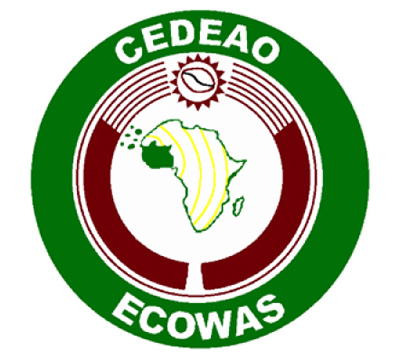Germany lauds ECOWAS for conduct of credible elections
 Germany has lauded the ECOWAS for its pivotal role in the conduct of credible elections in West Africa.
Germany has lauded the ECOWAS for its pivotal role in the conduct of credible elections in West Africa.
Mr Hans-Helge Sander, the Deputy Head of Mission of the German Embassy in Accra, said ECOWAS intervention through financial and technical support and its significant presence during elections had contributed to the entrenchment of democracy in the sub-region.
He mentioned the just concluded election in Sierra Leone, to which ECOWAS deployed 15 long-term and 40 short-term election observers; stating that some of these observers were trained at the Kofi Annan International Peacekeeping Centre (KAIPTC).
Mr Sander gave the commendation at the joint opening of the Human Rights Training in Multidimensional Peace Support Operation and the Long-Term Election Observation Course at the KAIPTC, in Accra.
The ECOWAS/KAIPTC Long-Term Election Observation Course stems from the Centre’s mission to contribute to training, research and education in the West African region in support of the ECOWAS Commission, the African Union and the United Nations.
The Human Rights Training in Multidimensional Peace Operations Course, on the other hand, is specially put together to equip human rights officers with the necessary knowledge, skills and technical competencies needed to support human rights in Peace Operations in Africa.
There are 64 participants in the week-long courses; of which 36 are pursing Long-Term Election Observation Course, while 28 are for the Human Rights Training in Multidimensional Peace Support Operation Course.
The participants are from Ghana, Burkina Faso, South Sudan, Sudan, the Democratic Republic of Congo and Sierra Leone, the United States of America, Italy and others.
Mr Sander stated that the conduct of free and fair elections was critical for the African sub-region’s socioeconomic development.
He said since 2014, ECOWAS, with the support of Germany, had deployed more than 135 long-term election observers to 12 Member States to observe elections.
They are Ghana, Guinea-Bissau, Nigeria, Togo, Guinea, Cote d’Ivoire, Burkina Faso, Niger, Benin, Cape Verde and Liberia.
He said the aim of Long Term Election Observation was to observe and report if the electoral process had been adhered to with integrity by the various stakeholders before, during and after elections.
“I am delighted that we supported the KAIPTC in adding this course to its current course portfolio,” he said.
He said the importance of human rights observers was equally important as human rights violations were unfortunately happening every day in different forms.
He said for example, the human rights situation in Mali had grown increasingly precarious; adding that according to Human Rights Watch, the situation in Central Mali raised particular concerns.
“It’s important to mention that human rights violations and abuses can also take place in stable countries, even though conflict and post-conflict states are more vulnerable,” he said.
Mr Sander said these incidents were due to the collapse of public infrastructure, government institutions and the rule of law, which made it difficult to protect civilians from violations and abuses.
He said preventing, mitigating and addressing such violations in conflict and post- conflict situations were pre-conditions for sustainable peace.
Air Vice Marshal Griffiths Evans, the Commandant of KAIPTC, said: “Democratic elections are the indispensable root of democracy and have become imperative for assessing national security, political stability and socio- economic development.
“For elections to have integrity, it must not only be conducted by election management bodies with full independence in a professional, non — partisan and transparent manner, but must also be certified free, fair and credible by election observers,” he added.
He noted that as a result, election observation regimes had become an important element in promoting transparency.
He said ECOWAS, for the past 15 years, had deployed observer missions to most of the presidential elections in the region.
“Nevertheless, the capacity to effectively discharge its mandate under section III of the Protocol on Democracy and Good Governance is unrealised among other factors, due to the absence and lack of a long-term approach to election observation,” he said.
He explained that this fact was rightly observed and extensively discussed in 2014 during the review exercise of the 2001 ECOWAS Protocol on Democracy and Good Governance.
He said the KAIPTC, as an ECOWAS Training Centre of Excellence, would continue to remain at the cutting edge of efforts at building the capacity of citizens from within West Africa and beyond, by providing them with training that will equip them with the necessary skills.
Source: GNA
